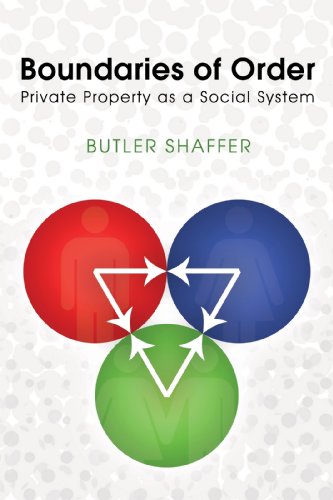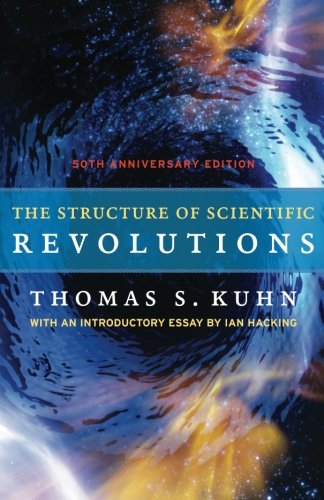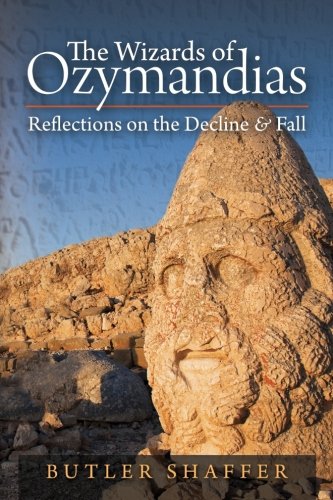[This article is from a talk I gave on July 31, 2016, at the seventh annual “Capitalism and Morality” conference held in Vancouver, B.C. Sponsored by Jayant Bhandari – a very bright, energetic libertarian – the conference brings together speakers and participants interested in exploring the deeper implications of liberty, private property, and free markets.]
To think that I attempted to force the reason and conscience of thousands of men into one mould and I cannot make two clocks agree.
– Emperor Charles V
Dating back at least to the time of Plato, most of us have been conditioned in the mindset that the more complex a society becomes, the greater the need we have for vertically-structured, top-down definitions of, and prescriptions for, social order. Such thinking has provided the symbol for most organizational systems: the pyramid, wherein authority flows downward to those expected to be obedient. Institutions – be they political, educational, religious, business enterprises – have long employed this organizational model in one form or another. The Egyptian pyramids, the Washington Monument, and the pyramid on the reverse side of the dollar bill are familiar examples of this concept. Chain-of-command hierarchies are generally used to identify roles within institutions.
 Boundaries of Order (L...
Buy New $2.99
(as of 01:55 UTC - Details)
Boundaries of Order (L...
Buy New $2.99
(as of 01:55 UTC - Details)
Scientific understanding – as reflected in Newtonian physics – has contributed to the perpetuation of this model in providing a mechanistic and reductionist view of nature in which “order” is the product of identifiable “laws” (e.g., gravity, motion, thermodynamics, light) that presumed a measurable certainty and predictability in the interplay of such forces with the material universe. A universe, whose makeup was conceived to be in the form of small building blocks (the subsequent discovery of atoms serving this model). The interaction among such factors was seen as occurring according to simplified processes of causation.
Seeing the universe as a giant clockwork that could be understood and manipulated by human intelligence began to erode with inquiries into quantum mechanics. Looking within so-called atomic building blocks revealed the unexpected: the linear, cause-and-effect behavior associated with the traditional model, was replaced by spontaneity. Even the gradualist assumptions of change were seen, at the subatomic level, as “quantum leaps” (e.g., the “gradual” warming of a pan of heated water is now understood to result from a specific molecule of water instantly jumping from an unheated to a heated state). The certainties and predictabilities of traditional physics had been reduced to “probabilities” and what one physicist called “tendencies to exist;” the “building blocks” became what Einstein termed “frozen energy.”
Current Prices on popular forms of Gold Bullion
Werner Heisenberg’s “uncertainty principle” created more doubts concerning human capacities to control nature to accomplish desired ends. One could measure the location and velocity of a molecule, but not both at the same time. One had to forego information as to velocity if checking for location, while testing for location did not permit knowledge of velocity. This fact found expression in the joke about Heisenberg being stopped by a highway patrolman while driving on a freeway. “Do you know how fast you were going? ” the officer shouted. “No, but I know where I am,” Heisenberg responded.
The idea that the acquisition of more knowledge would lead to an accumulation of greater understanding was laid to rest in Einstein’s observation that “as a circle of light increases, so does the circumference of darkness around it.”
 Against Method
Best Price: $8.21
Buy New $12.98
(as of 07:35 UTC - Details)
Against Method
Best Price: $8.21
Buy New $12.98
(as of 07:35 UTC - Details)
Such enhanced awareness of the limitations inherent in our ability to identify and control the details of nature’s functioning has not diminished the continuing faith of institutions in the old paradigm. Government agencies still employ “experts” to help formulate rules to regulate the uncertainties of the marketplace or the rest of nature; judges continue to formulate decisions based on the presumption that their rulings can anticipate consequences for upward of a million years!
Post-World War II thinking about the emerging role of computers continued to reflect Plato’s conviction that a body of knowledge sufficient to allow for intelligent planning required centralized systems functioning under the control of updated “philosopher-kings.” IBM’s Thomas Watson believed that “there is a world market for about five computers,” while, in the early 1970s, a computer industry executive intoned that there would never be a computer in the home. Such predictions gave rise to fears of a dystopian world, as envisioned in Orwell’s 1984, and expressed in the 1957 Spencer Tracy/Katharine Hepburn film Desk Set.
Then along came a wonderful man, Edward Lorenz – a mathematician whose ancestry was likely traceable to the leprechauns! – who, in an effort to use computers to predict the weather, discovered what has since become known as “chaos theory.” Uncertainty over the meaning of this concept imagines it to embrace little more than the sentiment that the world is collapsing into disorder, confusion, and random destructiveness. To the contrary, “chaos” is an expression of the order found in complex systems in which three or more interconnected factors interact to produce unpredictable consequences. The study of chaos raises questions as to whether there is such a phenomenon as “disorder,” or whether there are only outcomes whose causal contributions were not identifiable? Terry Pratchett expressed the proposition quite clearly: “Chaos is found in greatest abundance wherever order is being sought. It always defeats order because it is better organized.”
Resist the temptation to dismiss Pratchett’s thoughts as just playing with words. In the same way that serious students of “anarchy” understand that complex systems – such as human society – cannot be planned for to produce predictable results, the study of chaos informs us that an orderly world cannot be created by centrally-controlled, collective intention. The world, in its various expressions, is self-ordering, and our failure to live in accordance with this fact has rendered our lives – both personal and societal – destructive. “Reality” is far more complex and interconnected than our “either-or” conditioned minds can explain or direct.
The increased flow of information has both a liberating effect on the mind, as well as on the creative process, in that it expands the cross-fertilization of ideas that lead to alternative thinking and social systems. The institutional order has long favored enlarging the gap between what it knows, and what those subject to their authority know. This is why censorship, the classification of information into various categories of secrecy, the banning of books and, more recently, open hostility to the Internet and other technologies that foster direct communication among individuals, are insisted upon by the state. When “whistleblowers,” and those who assist them – such as Chelsea Manning, Ed Snowden, Julian Assange, Glenn Greenwald, and Wikileaks – reveal government secrets to the public, they are reducing this gap, thus providing an increased opportunity for popular analysis and understanding of organizational behavior.
As vertically-structured, chain-of-command systems collapse into horizontally networked systems, decision-making is decentralized. One sees this in modern business management organization – sometimes referred to as “participatory management” – in which employees exercise increased control over their work. Decision-making that had heretofore been directed by management supervisors – such as how and when work is to be performed, modifying work practices, and selection of new employees – is often made or shared with non-supervisory workers. Such decentralizing practices have led to increased productivity, creativity, and problem-solving, as those who are most familiar with the work to be performed and the tools to be employed are presumed to be more knowledgeable about what needs to be done. Such thinking also underlies the concept of academic freedom in schools, as well as First Amendment assumptions about the individual liberty to express alternate ideas.
Decentralized decision-making does not overcome the limitations imposed by chaos theory: even at a local level, complex systems still
 Desk Set
Best Price: $2.23
Buy New $6.95
(as of 09:00 UTC - Details)
produce unpredictable consequences. But there are fewer variables with which to contend when events are limited by time and space. For instance, a homeowner having to deal with a structural defect in his or her house has far fewer unknown factors to consider than does a government regulator presuming to create a single rule for thousands of houses.
Desk Set
Best Price: $2.23
Buy New $6.95
(as of 09:00 UTC - Details)
produce unpredictable consequences. But there are fewer variables with which to contend when events are limited by time and space. For instance, a homeowner having to deal with a structural defect in his or her house has far fewer unknown factors to consider than does a government regulator presuming to create a single rule for thousands of houses.
The now familiar example of U.S. Airways pilot, Chesley Sullenberger III, illustrates the advantages of decentralized decision-making. Shortly after taking off from LaGuardia Airport on January 15, 2009, his plane hit a flock of birds, whose impact disabled both engines. The plane was without power, and Sullenberger spoke with air traffic controllers, who suggested to him that trying to get to a field in New Jersey might be his best course of action. But in addition to being an airline pilot, Sullenberger was also an experienced glider pilot, and he knew that a glider was what he was now flying. He chose, instead, to land in the Hudson River, a decision that resulted in the loss of no one’s life. Any other pilot, without Sullenberger’s glider background, might have chosen the advice of the air traffic controllers, and the network news of that day might have focused on a plane crash in New Jersey that killed hundreds of people.
The events of that day revealed much about the spontaneous nature of the order. The sound thinking of Captain Sullenberger, combined with the immediate response of ferryboat operators who rushed to the scene to rescue passengers, demonstrates how well we are capable of responding when life is endangered. From the lessons learned that day, I ask you: were you to find yourself on a similarly situated flight, would you prefer to have the pilot be a person who strictly obeyed the predetermined directives formulated by an FAA bureaucracy or by another pilot whose judgments – in the face of such an unexpected occurrence – were made by an experienced pilot who, like you, was desirous of surviving? Perhaps the headline of the New York Times reporting of this event will help provide the answer. In contrast with the traditional top-down model by which collective prescriptions for future actions are generated by state agencies, the actions of the ferryboat operators were prefaced: “Old Hands on the River Didn’t Have to Be Told What to Do.”
The greater effectiveness of spontaneous systems of order can also be seen in the practice, in various cities in Sweden, Germany, New
 A Libertarian Critique...
Buy New $5.50
(as of 03:05 UTC - Details)
Zealand, Belgium, the Netherlands, and Great Britain, of abolishing all traffic signs: including speed limits, traffic lights, and other governmentally-imposed regulations. One might intuitively expect traffic accidents to increase but, in fact, just the opposite has occurred, with one town reporting a drop from eight to two per year. On the premise that “unsafe is safe,” the individual who devised this system defended the practice on the grounds that it “shifts the emphasis away from the Government taking the risk, to the driver being responsible for his or her own risk.” Instead of watching for police cars in rear-view mirrors, or reacting to changes in the color of lights in machines, motorists spent more time observing and negotiating with other drivers, leading to a greater “ability to be considerate,” thus fostering “our capacity for socially responsible behavior.”
A Libertarian Critique...
Buy New $5.50
(as of 03:05 UTC - Details)
Zealand, Belgium, the Netherlands, and Great Britain, of abolishing all traffic signs: including speed limits, traffic lights, and other governmentally-imposed regulations. One might intuitively expect traffic accidents to increase but, in fact, just the opposite has occurred, with one town reporting a drop from eight to two per year. On the premise that “unsafe is safe,” the individual who devised this system defended the practice on the grounds that it “shifts the emphasis away from the Government taking the risk, to the driver being responsible for his or her own risk.” Instead of watching for police cars in rear-view mirrors, or reacting to changes in the color of lights in machines, motorists spent more time observing and negotiating with other drivers, leading to a greater “ability to be considerate,” thus fostering “our capacity for socially responsible behavior.”
Are such events and practices anything more than interesting anecdotes, or might they provide hints as to how we must fundamentally alter our thinking and behavior if we are to end the institutionalized madness that is destroying what it means to be human? The well-being – even the survival – of our species itself, depends on upon the full expression of the life force that is found only within individuals. This importance is best served by social systems in which decision-making is diffused among individuals. Life belongs to the living, not to soulless abstractions to which we have conditioned ourselves to be subservient. Free-market systems grounded in voluntary behavior, private ownership of property, freedom of contract, peace, liberty, and a general respect for the inviolability of life are examples of individually-centered social values that I developed, in my Boundaries of Order book, as part of a “holographic” model of interconnected order.
Perhaps in the field of solid geometry, we might find a life-sustaining model to replace the vertically-structured pyramid that has proved so destructive. The sphere comes to mind as a solid that has no “top” or “bottom,” or other advantageous positions from which those ambitious for power over others can operate.
Major paradigm shifts in thinking have occurred over the centuries, with perhaps the best analysis found in Thomas Kuhn’s classic
 The Structure of Scien...
Best Price: $3.98
Buy New $7.00
(as of 03:40 UTC - Details)
The Structure of Scientific Revolutions. When established models of systemic thought fail to explain behavior inconsistent with the model, such irregularities can begin to generate a crisis. A geocentric model of the universe was increasingly unable to account for the observed behavior of other planets, a failure that a heliocentric paradigm was able to overcome. Because “all crises begin with the blurring of a paradigm,” Kuhn points out, this “failure of existing rules is the prelude to a search for new ones.” Kuhn warns, however, that it is not sufficient to show that the established model fails to describe nature; it is only when a relatively better theory can be offered that a paradigm shift will occur.
The Structure of Scien...
Best Price: $3.98
Buy New $7.00
(as of 03:40 UTC - Details)
The Structure of Scientific Revolutions. When established models of systemic thought fail to explain behavior inconsistent with the model, such irregularities can begin to generate a crisis. A geocentric model of the universe was increasingly unable to account for the observed behavior of other planets, a failure that a heliocentric paradigm was able to overcome. Because “all crises begin with the blurring of a paradigm,” Kuhn points out, this “failure of existing rules is the prelude to a search for new ones.” Kuhn warns, however, that it is not sufficient to show that the established model fails to describe nature; it is only when a relatively better theory can be offered that a paradigm shift will occur.
Does the vertically-structured model by which mankind has long been subjected to political control fail to serve the ends proclaimed for it? Are wars, depressions and other economic dislocations, corruption, police brutalities, politically-generated conflicts, genocides, torture, looting, seemingly limitless levels of taxation and government debt, inflation and other currency failures, indispensable elements for what you would expect to see as part of a sane, decent, free, and productive society?
The dynamics that generated paradigm shifts in scientific understanding may also be applicable to transformations in social thinking. In words relevant to the political structuring of our world, Kuhn observes that “political revolutions” develop when “existing institutions have ceased adequately to meet the problems posed by an environment that they have in part created.”
In its political manifestations, the slaughter of hundreds of millions of men, women, and children in service to the established paradigm is sufficient evidence for its failure to serve life. But as Kuhn advises in his analysis, is there a better alternative model by which social systems – both political and non-political in nature – can satisfy human needs for free, peaceful, and creative behavior? I offer as a candidate the decentralized model in which both thought and action are individually focused. In its political expression – although not limited to that realm – this would take the form of libertarian/anarchist thinking. (I am speaking, here, of ideas that run much deeper than an interest in legalizing the use of marijuana!)
 The Wizards of Ozymand...
Best Price: $8.38
Buy New $12.33
(as of 05:45 UTC - Details)
In his book, Against Method, another highly respected student of science, Paul Feyerabend, elaborated on what he termed “epistemological anarchism.” He elaborated on this: “The idea that science can, and should, be run according to fixed and universal rules are both unrealistic and pernicious.” To think otherwise is to overlook the contributions to scientific understanding that have arisen by accident, through dreams, guesswork, emotions, intuition, and spontaneous, diffused processes. Characterizing science as an “anarchistic enterprise” that is “more humanitarian and more likely to encourage progress than its law-and-order alternatives,” Feyerabend rested his case on the epistemological principle that “anything goes.”
The Wizards of Ozymand...
Best Price: $8.38
Buy New $12.33
(as of 05:45 UTC - Details)
In his book, Against Method, another highly respected student of science, Paul Feyerabend, elaborated on what he termed “epistemological anarchism.” He elaborated on this: “The idea that science can, and should, be run according to fixed and universal rules are both unrealistic and pernicious.” To think otherwise is to overlook the contributions to scientific understanding that have arisen by accident, through dreams, guesswork, emotions, intuition, and spontaneous, diffused processes. Characterizing science as an “anarchistic enterprise” that is “more humanitarian and more likely to encourage progress than its law-and-order alternatives,” Feyerabend rested his case on the epistemological principle that “anything goes.”
 At a time when computerized technologies provide for the widespread dispersal of both information and alternative systems for social practices, the works of Kuhn and Feyerabend may serve as a base for efforts to transform traditional models of imposed authority into networks of mutual independence. Perhaps Albert Jay Nock’s “Remnant” – those individuals who, following the collapse of civilization – will use their awareness of the “august order of nature” to “build up a new society.” In the course of their efforts, these people may have occasion to inquire into an etymological dictionary to discover why the words “peace,” “freedom,” “love,” and “friend” share an interconnected history. Perhaps in the mindset of our more distant ancestors we can find a more personal sense of what it means to live with others in society.
At a time when computerized technologies provide for the widespread dispersal of both information and alternative systems for social practices, the works of Kuhn and Feyerabend may serve as a base for efforts to transform traditional models of imposed authority into networks of mutual independence. Perhaps Albert Jay Nock’s “Remnant” – those individuals who, following the collapse of civilization – will use their awareness of the “august order of nature” to “build up a new society.” In the course of their efforts, these people may have occasion to inquire into an etymological dictionary to discover why the words “peace,” “freedom,” “love,” and “friend” share an interconnected history. Perhaps in the mindset of our more distant ancestors we can find a more personal sense of what it means to live with others in society.
Those who have schemed so insistently to create and maintain their monopolies of violence over all of mankind never found comfort in Gutenberg’s invention. But neither the banning nor burning of books, heresy trials, Inquisitions, the hanging or burning of witches, nor Luddite machine-breaking riots, were able to destroy the civilizing consequences of the decentralized and liberating character of expanded information that produced the Renaissance, the Enlightenment, the Reformation, the Age of Reason, or the Scientific and Industrial Revolutions. Perhaps our children and grandchildren, sharing with one another the dispersed and individualized powers of information that the established order so mightily fears, will transform the thinking, and clean up the mess, that my generation so ignorantly allowed to be created.





